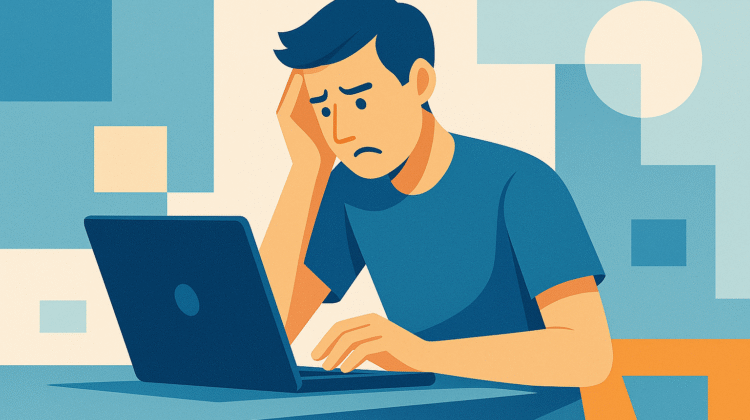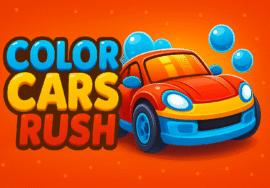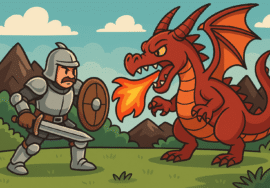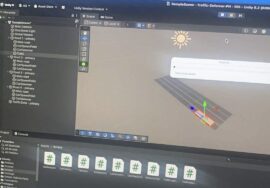
🚀Why Finishing a Game Is Harder Than Starting One
🎮 Why Finishing a Game Is Harder Than Starting One
Starting a game is easy.
You open Unity or Unreal Engine, create a new project, name it something cool like Project Phoenix, drop in a cube, and think — this is it, the next big indie hit.
You’re full of ideas, energy, and caffeine.
But somewhere between your first line of code and your final build, something happens.
The excitement fades. The bugs multiply. You start doubting your design.
And suddenly, finishing that “simple little game” feels like climbing Mount Everest with flip-flops.
Let’s talk about why finishing a game is so much harder than starting one, and why pushing through that wall is what truly separates game makers from game dreamers.
🚀 1. The Rush of Starting vs. The Grind of Finishing
Starting a new game feels like falling in love.
Everything’s fresh — the art, the mechanics, the possibilities. You’re imagining player reactions, YouTube reviews, and that first big Steam or App Store release.
You open your editor, drop a few sprites, tweak some lighting, and your mind races:
“What if this game had multiplayer? What if I add weather effects? What if it becomes viral?”
That idea high is addictive.
But finishing? That’s a different story.
Finishing is about polishing menus, fixing obscure bugs, tweaking button alignments, optimizing memory usage, balancing levels — and doing all of it when no one’s watching.
It’s not glamorous. It’s not exciting.
But it’s where games are truly made.
Every polished game you’ve ever played went through months (sometimes years) of that invisible grind. The kind that tests your patience, discipline, and even your self-worth as a creator.
🧠 2. Ideas Are Cheap, Execution Is Everything
Anyone can have a cool game idea.
A racing game with power-ups. A 2D platformer with time-bending mechanics.
But execution — the act of turning that concept into something playable, stable, and fun — that’s where 95% of projects die.
Game development isn’t just fun coding or cool art design.
It’s managing hundreds of micro-decisions:
-
How should the player move?
-
Is this jump too floaty?
-
Should I fix this bug now or later?
-
Why did the physics engine suddenly explode?
Each question sounds small, but together, they add up to hours, days, even weeks of decision fatigue.
That’s why you’ll see platforms like itch.io filled with amazing prototype demos — little sparks of creativity that never got finished.
Because ideas don’t finish games — persistence does.
⚙️ 3. The Middle Is Where Motivation Dies
The middle part of game development is the most dangerous zone.
You’re past the excitement of the beginning but nowhere near the satisfaction of finishing.
You have a prototype that works, but it’s ugly, buggy, and feels like a mess.
You look at your project folder — dozens of scripts, broken prefabs, confusing scene names like “TestScene_Final_FINAL2.”
And you start thinking…
“Do I even like this game anymore?”
“Maybe I should start a new one — something simpler, something cooler.”
That’s the trap.
Many developers get stuck in a loop of perpetual restarts.
They never finish a game because every new idea feels easier than fixing the old one.
But here’s the truth: the magic only happens after you push through that messy middle.
That’s when your game starts transforming from “a bunch of scripts” into something real.
🔧 4. Polishing Feels Endless
Let’s say you’ve got your gameplay loop done. Your menus are working. Your build runs.
Congrats — you’re 90% done, right?
Wrong. You’re 50% done.
That last 10% you thought was polishing? That’s actually the other half of development.
Every button, transition, particle effect, and sound cue adds up.
Polish is what separates an “okay” game from a professional one — and it’s exhausting.
You’ll test on different devices, fix frame drops, adjust font sizes, tweak volume levels, optimize load times, and find yourself saying:
“Why is this taking so long for such a tiny change?”
Because finishing requires details.
And details take time — lots of it.
That’s why so many devs quit right before release. They underestimate how much work it takes to make a game feel done.
🧩 5. Perfectionism Is a Silent Killer
One of the biggest enemies of finishing a game is perfectionism.
You might think,
“I can’t release it until it’s perfect.”
But that’s a trap.
Perfection is an illusion that moves further away the closer you get.
The more you polish, the more flaws you notice.
The trick is learning to say:
“It’s good enough for now.”
Every successful developer — from solo devs to AAA teams — learns this lesson eventually.
There’s always something to improve, but you need to draw the line somewhere.
Otherwise, you’ll spend years polishing a game that no one ever gets to play.
💸 6. Motivation Fades When Reality Hits
At first, you’re motivated by the dream — “This could be my breakout game!”
But as the months pass, reality creeps in:
-
Bills need paying.
-
Your day job drains your energy.
-
Your friends ask, “So, is your game done yet?”
Suddenly, game dev feels like work — not passion.
And that’s when you find out what you’re really made of.
Because finishing a game isn’t about talent or skill.
It’s about consistency, patience, and showing up even when you’re tired.
You keep going not because it’s easy — but because you want to see it exist.
🧍 7. The Fear of Releasing
Even when you’re technically done, many devs freeze before release.
You start asking:
“What if nobody likes it?”
“What if it gets zero downloads?”
“What if I wasted months for nothing?”
That fear is powerful. It’s called launch anxiety, and it’s one of the hardest emotional hurdles in game dev.
Finishing your game means exposing your creation — and yourself — to the world.
You’re not just shipping code; you’re sharing a piece of your creativity.
It’s scary, but it’s necessary.
Because unfinished games don’t teach you what finished ones do.
Even if your game only gets 10 downloads, it’s a finished project — a milestone that will make your next one better.
💾 8. Tools and Technology Can Burn You Out
As you move closer to the finish line, technical problems multiply:
-
Build errors on iOS or Android
-
Random crashes on older devices
-
Version control conflicts
-
Plugin updates breaking your project
You’ll find yourself googling obscure Unity errors like “ArgumentException: Gizmo drawing functions can only be used in OnDrawGizmosSelected.”
And sometimes, fixing one issue breaks another.
That’s when frustration peaks.
Because instead of building your dream, you’re debugging your nightmare.
But every time you fix one of those problems, you grow as a developer.
Finishing a game is like earning your scars — painful but powerful.
🧭 9. Finishing Teaches You More Than Starting Ever Could
Every completed project — no matter how small — teaches you discipline, workflow, and creative endurance.
You learn how to:
-
Manage scope
-
Create efficient pipelines
-
Handle feedback
-
Prioritize tasks
-
Let go of perfection
Those lessons are priceless.
Finishing a game gives you momentum.
It builds confidence and shows you that you can turn an idea into reality.
Once you’ve finished one, the second one is easier — not because it’s simpler, but because you’ve built the mental muscle to finish.
❤️ 10. The Joy of Seeing It Come Alive
Despite all the frustration, finishing your game is one of the most fulfilling feelings in the world.
When you finally see your app live on Google Play or the App Store — or when someone comments, “This game is fun!” — it makes all the sleepless nights worth it.
It’s not about money or fame (though those are nice).
It’s about creation.
About seeing something that once lived only in your mind become real.
That’s why we do it. That’s why we endure the grind, the bugs, the burnout.
Because when you finish, you’ve done something most people never will — you’ve turned imagination into experience.
✨ Final Thoughts
Starting a game is like lighting a spark.
Finishing one is like keeping that fire alive through wind, rain, and self-doubt.
It’s not easy — but that’s what makes it meaningful.
Anyone can start.
Few finish.
And the ones who do? They’re the ones who grow, improve, and eventually create something unforgettable.
So if you’re stuck in that messy middle — frustrated, tired, doubting your skills — don’t quit yet.
You’re closer than you think.
Take a break, fix one more bug, push one more build.
Because finishing, no matter how hard it gets, will always be the most rewarding part of the journey. 💪🎮
Author’s Note:
This post is dedicated to every indie developer staring at their unfinished project folder — you’re not alone. Keep going. Even the smallest finished game is a victory worth celebrating. 🚀







